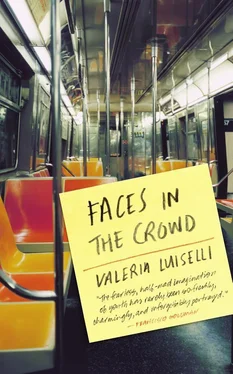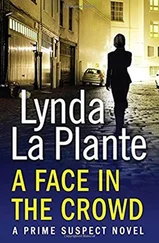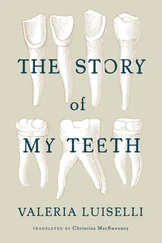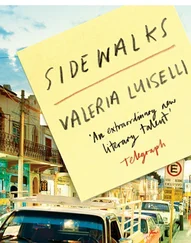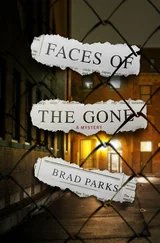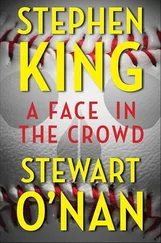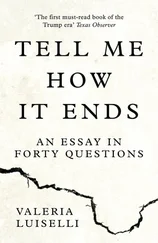The rooftop door, a thin metal sheet, began to shake slightly and then burst open. The girl had come up alone. She stood there, gazing blankly at me, and asked:
Are you the ghost that lives up here?
No, I just came up to water my plant early this morning and got locked out.
But are you a ghost?
No, ghosts don’t exist. I’m Mexican.
We’re from the Dominican Republic. My mom doesn’t let us come up here because of the ghost.
She’s right.
What are you going to do with that dead tree?
I’m going to take it to the tree doctor.
She turned and I followed her, carrying the pot. We went slowly downstairs. Outside, a bunch of fat kids were waiting for her. I put the pot down for a moment and we shook hands, rather awkwardly on my part.
What’s your name? I asked.
Dolores Preciado, but they call me Do.
I picked up the pot again. The other children watched me pass, carrying the dead tree. They laughed, shamelessly made fun of me: the natural cruelty of children becomes more intense when they are fat. I crossed to the other side of the park and Do shouted to me:
Tree doctors, they don’t exist either!
When I got to my apartment, I put the plant pot next to the writing desk. Before taking a bath, before making coffee, before having a pee, I sat down to write a feverish report on Gilberto Owen’s Sindbad el varado . The Chinese student was drinking soup at his worktable.
*
Some evenings, my husband and I work together in the living room, spurred on by the whisky, the tobacco, and the promise of late-night sex. He says that we only work at night so we can smoke and drink in peace. We’ll get to the bed, after making a few additions to our respective documents, as excited as two strangers who have met for the first time and don’t tell each other anything or demand explanations. The tabula rasa of the pages and plans, the anonymity the multiple voices of the writing offer me, the freedom his empty spaces give to him.
*
In that apartment, there was nothing. There weren’t even ghosts. There were heaps of half-alive plants and a dead tree.
*
In this house we often run out of water. The boy says that it’s the ghost who uses up the reserves in the cistern. He says it’s a ghost who died of thirst and that’s why it drinks all the water in the house.
*
Pajarote invited me to dinner to celebrate his birthday. We went to a French place. I knew that, for the gringos, French means elegant, so I was well dressed and on my best behavior. I didn’t order much food, onion soup and clams; he had duck. I babbled on about the plant I’d taken from the roof of Owen’s old building, about the girl called Do who’d saved me, about Owen’s possible lives in 1920s Harlem, about the new writing desk and its chair, about Moby and the Japanese robes and how sad I’d felt making love on a mattress, next to a printing press, with a man with a big nose. Pajarote looked at me in silence.
You’ve got a bit of burnt onion on your teeth, he said when I finally paused.
We finished eating and were brought liqueurs in tiny glasses. When we’d polished off the drinks, I put the glasses in my bag. They were very pretty glasses. Pajarote looked at me quizzically. It’s my birthday, he said, please don’t steal today. I’ll buy you the glasses. And he called the waiter over and bought them for me.
*
The baby laughs out loud for the first time. She makes a noise like a whale and her voice immediately breaks into four abrupt, light, resonant gusts of laughter.
*
White wasn’t impressed by my first report on Owen. He left a note stuck on the screen of my computer: “Bring me something that really can be translated into English and return the wooden chair you stole from the bathroom, then we’ll talk about what we might be able to do with your Owen. Yours, W.”
Unlike the majority of gringo publishers, White was not monolingual. And in contrast to the majority of gringos who speak Spanish and have spent some time in Latin America and think that gives them a kind of international third-world experience that confers on them the intellectual and moral qualifications for — I don’t quite know what — White really did understand the fucked-up mechanisms of Latin American literary history. Faced with his reluctance, the most natural thing for me to do would have been to take note and leave Owen alone.
*
The boy to his father:
Do octopuses have little mobydicks?
I’m working.
And shrimps? And sea sponges?
The boy’s father thinks for a moment and then:
Shrimps are little-dicks.
*
When the doctor told me my second pregnancy was “high risk,” I stopped just about everything: smoking, drinking, walking, writing, breathing. I was afraid the baby wouldn’t be fully developed: the spine incomplete, crooked; the nervous system disconnected; I was afraid of mental retardation, delayed learning, blindness, sudden infant death syndrome. I’m not religious, but one day when I was in the street I had a panic attack — my sister Laura explained later that that was what it was — and I had to stop in a church. I went in to pray. That is, I went in to ask for something. I prayed for the unformed baby, for the love of its father and brother, for my fear. Something in the silence convinced me that there was a heart in my belly, a heart with an aorta, full of blood; a sponge, a beating organ.
*
A dense, porous novel. Like a baby’s heart.
*
In the copy of Owen’s Obras I borrowed from the library there was a section with photographs, placed more or less at random among the pages of Novela como nube . One of the photos caught my eye. Two-thirds of Owen’s profile occupied almost the whole space. The wide forehead and a strand of wavy hair. A thin nose, practically a beak. The eyebrow shading an almost nonexistent eyelid, the soft, sleepy eye. Scarcely a trace of upper lip. All the rest, black. An almost faceless man. I carefully tore out the photo and placed it on one of the branches of the dead tree, next to my writing desk — anyway, I had no intention of returning the book to the library.
*
My husband and I watch a film with the children. It’s called Raining Hamburgers . It’s a ridiculous story. The baby, who is the most sensible of the four, falls asleep after a few minutes; the boy stays awake only a little longer. We carry them to their crib and bed respectively, and watch them sleep. In some way, we love each other in them, through them. Perhaps more through them than through ourselves — as if since their arrival the empty space that brought us together and separated us had been filled with something, something that was neither him nor me, that now seemed essential to our self-justification. We kiss their foreheads, close the door of their room. We lie on our bed and finish watching the film, unable to sleep.
*
I sometimes slept in an armchair on the tenth floor of my building because there was too little air and too much noise in my apartment. There was always someone or something else there: Moby taking a bath, Pajarote breakfasting on toast, Dakota with the bucket; there was the echo of White’s sad story, the menace of the live plants, a dead tree and a photo of the ghost of Gilberto Owen — all those things stopped me sleeping.
*
One afternoon, I took White to Saint Nick’s, a bar not far from the office, to try to convince him of Owen’s potential. We’d been talking about St. John of the Cross the whole day, discussing the Spiritual Canticle, because White was going to bring out a bilingual edition with an English translation by the well-known American poet Joshua Zvorsky. The original manuscript was incomplete, so we had to restore the missing sections. We stayed there well into the evening, working on some of the Bride’s stanzas, and ordering more whisky.
Читать дальше
